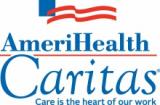National Environmental Leadership Award in Asthma Management
On this page:
About the National Asthma Awards
Each year, EPA honors exceptional health plans, health care providers and communities in action. This award is EPA's highest recognition a program and its leaders can receive for delivering excellent environmental asthma management as part of their comprehensive asthma care services.
EPA is committed to improving the lives of people with asthma by integrating sound science into effective public health programs. In addition to honoring program leader's achievements, the goal of the awards program is to showcase the highest standards in asthma care and management.
Consider applying, if your work:
- Addresses environmental triggers as part of a comprehensive asthma program
- Fosters high-performing collaborations and partnerships
- Improves the daily lives of those with asthma and their families
Why Apply?
The Environmental Leadership Award in Asthma Management is the nation's highest honor for programs helping people bring asthma under control. Winners will be recognized in May during Asthma Awareness Month. Winning this award is a sign of excellence and confirmation of success in helping people with asthma lead healthy, active lives.
Winners will receive:
- A place in the National Environmental Leadership Award in Asthma Management Hall of Fame.
- An engraved, crystal award.
- Recognition on national websites, including the Asthma Community Network. Exit
- Customized press kits, a descriptive snapshot of your program and support generating media attention.
- An opportunity to serve as mentors to help other programs achieve impactful results.
Start thinking about your application for the 2016 National Environmental Leadership Award in Asthma Management today! Visit the Asthma Community Network Exitfor more information.
Award Winners
In partnership with other federal agencies and nonprofit organizations, EPA delivers a national, multi-faceted education and outreach initiative to increase public awareness and action to manage environmental asthma triggers as part of comprehensive asthma management. An important component of this initiative is the recognition of exemplary programs and community leaders so that they may serve as national models and mentors for community asthma care improvement. The National Environmental Leadership Award in Asthma Management celebrates the outstanding programs and leaders who are improving the lives of people with asthma by delivering strong environmental asthma management as part of their comprehensive asthma care services.
Since 2005, 38 health plans, health care providers and communities in action have been inducted into the Hall of Fame. For a complete listing of Award Winners, please visit Asthma Community Network Hall of Fame Exit.
The following links exit the site Exit
2016 Award Winners
Health Care Provider Winners
AmeriHealth Caritas, through its local affiliate, has implemented a comprehensive asthma management program to serve Medicaid recipients and their families living in southeastern Pennsylvania. Care managers and support staff apply a sustainable approach based on population health, guiding members through a continuum of care that is built on solid evidence and works within AmeriHealth Caritas’ integrated health care management system. High-risk members are identified for individual care management assessment, care planning and interventions focusing on priority areas (i.e., asthma control action plan, sick day plan, medication management, behavioral risk management and asthma self-management).
Members and network providers can participate in several unique, award-winning initiatives that support the delivery of asthma medication and supplies, asthma education, and home environmental surveys. AmeriHealth Caritas partnered with the local affiliate’s network providers to adopt unique community health worker (CHW) models in northeast Philadelphia, west Philadelphia and Chester tailored to the local demographic and fiscal environment. Trained CHWs, supervised by a medical director, cooperate with the practice- and telephone-based care management system to provide face-to-face care coordination, home health and environmental surveys, and asthma-related education for members and their families while addressing the social determinants impacting members’ health. When environmental asthma triggers are identified, the CHW may deliver “asthma home kits” (including hypoallergenic mattress and pillowcase covers) and suggest such actions as conducting mold remediation. Additional service offerings include provider-led dispensation of asthma medication and supplies and hands-on education during office visits (B.E.S.T. asthma program—Breathe Easy. Start Today.®); school-based clinic partnerships to address member care gaps in asthma medication adherence; and “edutainment” programming (Healthy Hoops®) for children with asthma and their families.

Public Health - Seattle and King County Asthma Program (KCAP)
During its 20-year history, the King County Asthma Program (KCAP) at Public Health—Seattle & King County has pioneered research and programs in asthma management. Under the guidance of Dr. Jim Krieger, KCAP developed its core programming: home visits with community health workers (CHWs) to reduce asthma triggers in homes and improve asthma outcomes. For 20 years, KCAP’s projects and research have helped build the solid evidence base for this model, which now informs asthma services offered across the nation. To build this program, KCAP program staff have worked with care providers in public health settings, hospital systems, community clinics, health plans, academic institutions, schools, housing agencies and community organizations. Since its original demonstration project began in 1997, KCAP has engaged more than 4,000 patients in programs to manage environmental asthma triggers and improve care delivery for better health outcomes. These efforts have contributed to decreases in asthma-related hospitalizations and urgent care use, increases in patient and caregiver quality of life, and a greater overall return on investment when compared to standard care. KCAP continues to build the evidence base for the CHW model and patient-centered asthma care, and it serves as an exemplar for asthma care delivery across Washington state and nationwide.
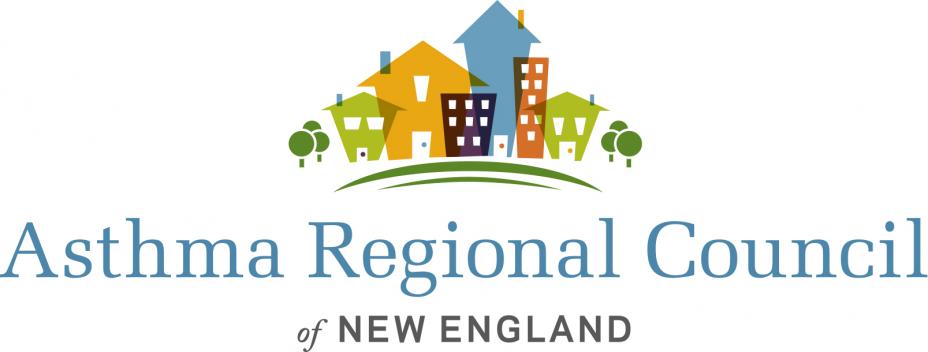
Asthma Regional Council for Their New England Asthma Innovation Collaborative (ARC)
Organized by Heath Resources in Action’s Asthma Regional Council (ARC), the New England Asthma Innovation Collaborative (NEAIC) is a multisector initiative covering four states: Connecticut, Massachusetts, Rhode Island and Vermont. Funded by the Center for Medicare and Medicaid Innovation (the Innovation Center), NEAIC was designed to support infrastructures that deliver home visiting services to primarily Medicaid and State Children’s Health Insurance Program (CHIP)-enrolled children (ages 2–17) with poorly controlled asthma. NEAIC has trained clinical staff and community health workers (CHWs) to provide cost-effective, high-quality and culturally competent asthma home visiting services. CHWs—supervised by a nurse or certified asthma educator—have provided three to four home visits for 1,145 children, educating their caregivers and delivering low-cost supplies to help families reduce environmental asthma triggers. Through the efforts of the CHWs, NEAIC has seen a substantial decrease in hospital admissions and urgent care visits and a reduction in missed school days and work days because of asthma. Though Innovation Center funding has concluded, several provider sites are continuing CHW services, and NEAIC continues to promote sustainable financing for these important efforts.

Urban Health Plan (UHP) is a network of nine community health centers and nine school-based health centers located in the South Bronx, NY—the poorest congressional district in the country—and Corona, Queens, NY. Located within UHP’s catchment area, in Hunts Point, Bronx, is the largest food distribution center in the country. As a result of the traffic and pollution generated by the trucks used to distribute food, Hunts Point has one of the highest asthma rates in New York City.
Asthma Relief Street, UHP’s asthma management program, cares for more than 12,000 people with asthma using a multidisciplinary program that is fully integrated into its primary care practice. Asthma patients are assessed, treated and educated at every visit, whether they come for well-child care, a followup, or a sick walk-in visit. UHP has a robust asthma education program, with health educators located at all of its sites and in all departments. UHP’s health educators follow an asthma curriculum that was developed by UHP clinicians. It includes five lessons: (1) definition of asthma (2) the signs and symptoms of exacerbations (3) recommendations on remediation in the home to address environmental triggers (4) differences between "controller" and "rescue" medications (5) and understanding of spirometry and exhaled nitric oxide. The health educators work collaboratively with New York City Asthma Intervention and Relief (a.i.r. nyc) on home intervention and pest management programs. UHP also is one of the early adopters of nitric oxide testing in patient evaluations, which helps to diagnose asthma, measure response to steroid therapy and level of inflammation control, and monitor adherence to treatment. The program distributes nebulizers onsite and ensures that families have the skills to use them correctly. For patients with severe and uncontrollable asthma, both an allergist and a pulmonologist are on site. UHP’s Asthma Relief Street Program has resulted in improved asthma outcomes and has been sustainable and cost-effective for more than 15 years.
2015 Award Winners
Health Care Provider Winners

The Le Bonheur Children’s Hospital’s CHAMP Program (Changing High-Risk Asthma in Memphis through Partnership) is a collaborative that serves children ages 2–18 in Memphis, Shelby County, Tennessee, who are identified as having high-risk asthma. Of CHAMP’s patients, 95 percent are African American children who suffer from poorly controlled asthma that results in preventable hospital and emergency department (ED) encounters, missed school days, and diminished quality of life.
Asthma affects up to 13.5 percent of children in Memphis, and it is the cause of 40 percent of Le Bonheur Children’s Hospital admissions. According to the 2010 Tennessee Discharge Data Set, almost 4,000 children were seen in emergency rooms in Shelby County for asthma-related problems. More than 600 of these children had multiple ED visits or hospitalizations, and nearly 200 required intensive care unit admissions. Pediatric asthma hospitalizations cost the Tennessee Medicaid system (TennCare) $2.1 million in avoidable hospitalizations, and an additional $2.6 million for ED visits.
Communities in Action Winner
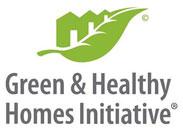
Green and Healthy Homes Initiative
GHHI provides an innovative approach to addressing substandard housing by braiding together categorically separate but mission-related funding and programs, and by leveraging federal, state, local and philanthropic resources to create healthy, lead-safe and energy efficient homes across America. Launched in partnership with the U.S. Department of Housing and Urban Development, the US Centers for Disease Control and Prevention, and the White House Office of Community Initiatives in 2009, GHHI is effectively transforming the housing intervention system at the local level.
The Green & Healthy Homes Initiative (GHHI) serves low-income families living in Baltimore City, Maryland, who face a higher than average rate of asthma prevalence, hospitalizations, emergency visits and deaths compared with other Maryland regions and the nation as a whole. Working through a coalition of 35 federal, state, local, nonprofit, university and philanthropic partners, GHHI uses a transformative asthma management model that combines in-home family asthma education; a comprehensive health, safety and home energy audit; and root cause remediation. Since 2000, GHHI Baltimore has completed housing interventions in 1,118 homes of patients diagnosed with asthma in Baltimore City.
2014 Award Winners
Health Care Provider Winners

Multnomah County Health Department
Multnomah County Health Department partners with organizations at the national, state and local levels to deliver a multi-component healthy homes program across Portland and Multnomah County, Oregon.
The Healthy Homes Program developed as a result of a community assessment which was guided by the efforts of a community-based environmental health coalition. The coalition was comprised of a network of 45 community-based organizations, local agencies and public officials and was instrumental in developing and implementing a community-based environmental health assessment to identify community environmental health concerns.

Peach State Health Plan in Atlanta, Georgia, is a statewide Medicaid managed care organization that delivers a customized asthma program for teenagers. The Plan is part of the Centene Corporation, an integrated health enterprise that delivers Medicaid services in 19 states. Peach State Health Plan has a targeted asthma improvement program focused on their teen members with asthma because almost 20 percent of teens in the Plan have an asthma diagnosis (13,159 members with asthma out of 66,138 members ages 13–19.) Peach State's innovative program has successfully engaged teens with asthma—a notoriously hard group to engage—and has demonstrated success in improving teens' ability to understand their asthma, improve their asthma, and address the environmental and social factors that can make asthma worse.

Tufts Medical Center (Tufts MC) is a not-for-profit academic medical center that provides health care to patients both locally in the City of Boston, Massachusetts, and regionally in surrounding communities. For the past eight years, Tufts MC's Department of Community Health Improvement Programs (CHIP) has operated the Asthma Prevention and Management Initiative (APMI) to serve a primarily immigrant, non- or limited-English speaking and densely populated Chinatown community. APMI is the only local asthma management program that focuses on and prioritizes Asian speaking families and features program components in the hospital, schools and community.
Tufts Medical Center established the APMI in 2006, in partnership with Chinatown school principals. Asthma prevalence had increased from 15 to 20 percent at the local elementary school that year (compared to a 10 percent prevalence in Boston as a whole) and Tufts MC's bilingual pediatric providers saw a spike in asthma-related urgent care visits. In response, the CHIP team set out to inform the community in places where people live, work, and gather - at day cares, elementary and secondary schools and community agencies - and educate patients and families during home visits to children with poorly controlled asthma.
2013 Award Winners
Health Care Provider Winners

Greenville Health System's Asthma Action Team
The Center for Pediatric Medicine (CPM) with the Greenville Health System Children’s Hospital is the major clinical provider of outpatient care for children with limited health care access in Greenville, South Carolina. A diverse community, Greenville is South Carolina’s most populous county and asthma/bronchitis is the leading cause of hospitalization for children under 18 in the area. Ninety percent of the population served at CPM receives Medicaid funding.
The Asthma Action Team (AAT) is a multidisciplinary, multilingual, family-centered program that was formed in 2008 to address increasing asthma prevalence, increasing pediatric emergency department (ED) visits and hospitalizations and ED recidivism for asthma, and growing asthma disparities in greater Greenville. The AAT is staffed by pediatricians, certified asthma educators, respiratory therapists, case managers, nurses, social workers, translators, an electronic medical record (EMR) technician, and community home visitors. Residents training in pediatrics, internal medicine, family practice and third and fourth year medical students also rotate through the AAT clinic where they learn an evidence-based approach to asthma care according to the National Asthma Education and Prevention Program (NAEPP) Guidelines for the Diagnosis and Management of Asthma.

Parkview Health System is a nonprofit health care provider that delivers care to more than 875,000 people in a five-county area in northeast Indiana. Parkview’s community consists of urban, suburban and rural populations that have seen increasing asthma prevalence over the past 15 years. In response to data indicating that asthma is a frequent cause for emergency health care services, particularly among low-income communities served by Parkview, as well as input from community partners, the hospital developed a comprehensive Asthma Education and Management Program in 2004.
Parkview’s Asthma Education and Management Program identifies children and adults with asthma and improves their ability to self-manage by providing support services, resources and age-appropriate education. The program is run by the hospital’s Integrated Community Nursing Program and relies on Parkview’s partnerships with local school districts and social service agencies to enroll patients and deliver program services. Parkview also partners with the Fort Wayne-Allen County Department of Health and Indiana State Department of Health (ISDH) to provide environmental home visits and to evaluate the Asthma Education and Management Program’s impact. With its partners, Parkview also educates school staff, including school nurses, teachers, coaches and bus drivers on the signs and symptoms of asthma and instruction on how to address a severe asthma attack. Parkview also works with the county’s Healthy Homes Program to provide environmental home visits and in-home asthma/allergy education.
Communities in Action Winner

North East Independent School District
The North East Independent School District (NEISD) is a large urban district that serves 67,000 students, including more than 8,000 with asthma. In 2006, NEISD hired a registered respiratory therapist/certified asthma educator (RRT/AE-C) to launch an asthma management program to improve students’ asthma control and attendance in order to positively contribute to the district’s academic performance.
NEISD’s investment in the Asthma Awareness Education Program (AAEP) reflects its leadership’s recognition that asthma control is fundamental to student achievement. The AAEP’s evaluation data have demonstrated that comprehensive school-based asthma management programs can improve disease management, reduce emergency health care utilization, and increase school attendance, thus impacting academic performance and generating a return on investment. In Texas, as in a handful of other states, average daily attendance rates are at the foundation of the state’s formula for distributing school revenue. An effective school-based asthma control program like NEISD’s can quickly increase attendance and thereby pay for itself.
2012 Award Winners
Health Plan
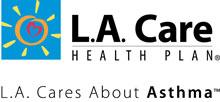
L.A. Care Health Plan established the comprehensive disease management program LA Cares About Asthma® in 2003. L.A. Care selected asthma as a disease management focus because of the large number of members with asthma enrolled in L.A. Care and the success of programs like these in helping patients with chronic illness improve their health status over the course of the disease. LA Cares About Asthma ® is a collaborative program designed to improve member self-management through education, empowerment, monitoring and member input and communication.
On a monthly basis, LA Cares About Asthma® identifies health plan members with asthma and provides them with a variety of educational materials and tools to help them take control and manage their disease. To be inclusive to its community’s needs, the program ensures that linguistically and culturally appropriate materials are available for all potential enrollees.
Health Care Provider

Mission Children’s Hospital serves the 21 most rural and isolated counties in North Carolina. This area’s diverse minority population faces some of the greatest health disparities in the state, and further, the majorty of Mission Children’s Hopsital patients are uninsured or underinsured. Pediatric asthma, unsurprisingly, is one of these disparate health concerns.
Through an innovative and bold approach designed to meet the unique needs of this population and to impact minority children suffering from asthma in a significant way, Mission Hospital developed the Regional Asthma Disease Management Program (RADMP).
Community in Action
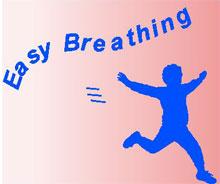
Connecticut Children's Medical Center"
Mission Children’s Hospital serves the 21 most rural and isolated counties in North Carolina. This area’s diverse minority population faces some of the greatest health disparities in the state, and further, the majorty of Mission Children’s Hopsital patients are uninsured or underinsured. Pediatric asthma, unsurprisingly, is one of these disparate health concerns.
Through an innovative and bold approach designed to meet the unique needs of this population and to impact minority children suffering from asthma in a significant way, Mission Hospital developed the Regional Asthma Disease Management Program (RADMP).
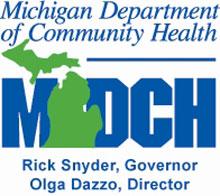
Michigan Department of Community Health
In the mid-90s, the Michigan Department of Community Health (MDCH) recognized asthma as a growing health problem, especially among low-income children and populations with economic, race and access disparities. As MDCH geared up to increase asthma awareness in these disproportionately affected communities, it quickly determined that a coordinated effort would ultimately have the greatest impact on health outcomes.
Therefore, in 2000, MDCH brought together more than 125 asthma experts to develop the first statewide plan to address asthma in communities bearing the highest burden. This successful collaboration lead to the creation of the Asthma Prevention and Control Program (APCP).
The APCP, which provides expertise and long-term guidance for asthma quality improvement activities, has aided in the development and impact of many successful community-based asthma management programs across the state, such as Managing Asthma Through Case-management in Homes (MATCH). This program utilizes a combination of home, school and work visits; asthma action plans; and Medicaid reimbursement to provide long-term interventions and care for individuals with asthma. MATCH participants reported significantly fewer emergency room visits and hospitalizations, and had significantly shorter lengths of stay, if hospitalized due to asthma.
2011 Award Winners

Centene Corporation, Nurtur, Managed Health Services
As an experienced, comprehensive service provider, Managed Health Services, a Centene Corporation Medicaid health plan, understands the need to customize asthma solutions for diverse populations. As a result, in 2007 Managed Health Services and sister company, Nurtur, Centene life, a health and wellness company, established a comprehensive asthma program designed to address the needs of several specific target audiences; these include persons with asthma in addition to other complex chronic conditions, as well as pregnant women and children with asthma.
Medical records, pharmacy records and claims data are scanned by predictive modeling software to identify patients that meet these criteria, who are then referred to the Asthma Team. A case manager follows up with each patient to assess their level of need and recommends an appropriate asthma intervention. Educational materials for children and adults, trigger identification training, goal-setting exercises, home visits and barrier assessments are just some of the many tools used as a part of this holistic asthma care process. The patient’s treatment plan is also updated by the Asthma Team and sent to the physician for review.

South Bronx Asthma Partnership
In New York’s South Bronx community, one in five school-aged children has asthma — one of the highest rates in New York City. In response to this staggering statistic, Bronx-Lebanon Hospital Center’s Department of Pediatrics created the Childhood Asthma Management Program in 2000. Through clinical pediatric asthma services, community-based activities of the New York State Department of Health-funded asthma coalition, and hospital-community collaborative programming, the program promotes asthma-friendly environments and ensures the delivery of integrated health care services for children with asthma.
Early on, program staff members recognized that to improve asthma outcomes, they must not only improve provider knowledge and communication, but also strengthen the existing health system in which providers practice. As a result, the program conducts provider training sessions that translate asthma management recommendations into quality clinical practice to ensure that patients receive comprehensive asthma services across the care continuum. Furthermore, the program engages Medicaid to provide reimbursement incentives for provider participation in asthma education.
As the lead organization of the South Bronx Asthma Partnership, Bronx-Lebanon Hospital Center also partners with a variety of environmental agencies and community organizations to create tailored environmental interventions that address both indoor and outdoor asthma triggers. Program partners provide building walk-throughs, designate asthma-friendly zones at schools, and provide pest management assistance and air-sampling. In addition, the program distributes culturally appropriate and literacy-sensitive educational materials throughout the hospital and the community to promote patient self-management and encourage healthy behaviors in homes.

New York State Department of Health, Center for Environmental Health, Healthy Neighborhoods Program
In the early 1980s, the New York State Department of Health, Center for Environmental Health recognized that housing hazards were often complex and were best addressed by a neighborhood-level approach. As a result, the Center developed the Healthy Neighborhoods Program in 1985 — a statewide program aimed at improving housing conditions in high-risk communities through a holistic, healthy homes approach.
This program relies on an extensive network of grant-funded, local health department partners and emphasizes home environmental management as an enhancement to case management and clinical care. Local health departments initially identify target areas in the community for intervention and develop work plans to meet the specific needs of that area. These health departments are also encouraged to leverage local resources and infrastructure to ensure that the services delivered are meaningful and effective.
2010 Award Winners
Community Asthma Initiative, Children’s Hospital Boston
Children’s Hospital Boston developed the Community Asthma Initiative (CAI) in 2005 in response to alarmingly high rates of asthma among children living in Boston’s urban neighborhoods, especially underserved children and families. CAI is a patient-centered program that provides bilingual (Spanish) in-home family asthma education, environmental assessments and remediation; Integrated Pest Management; and coordination with primary care providers, in conjunction with community education, outreach and advocacy. Care is provided and coordinated through a culturally appropriate case management model that identifies barriers to good asthma control and includes home visits conducted by nurses and/or community health workers, depending on the family’s needs.

Neighborhood Health Plan of Massachusetts
Founded in the late 1980s, Neighborhood Health Plan (NHP) was one of the nation’s first health plans to comprehensively address the health care needs of underserved populations. As part of its commitment to improving the lives of its 200,000 members and in response to alarming rates of asthma among the Plan’s target population, NHP introduced its innovative Asthma Disease Management Program (ADMP) in 2000. NHP provides an Asthma Home Visitation Program (AHVP) to all members living with asthma in need of in-depth asthma education and/or home environmental assessment. NHP implemented an Enhanced Asthma Home Visit program in 2005 based on the positive outcomes of a one year Inner City Asthma Study (ICAS) of non-clinician home-based environmental intervention to reduce exposure to environmental triggers and allergens.
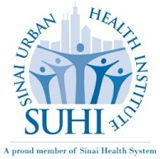

Since 2000, the Sinai Urban Health Institute (SUHI) and Sinai Children’s Hospital (SCH) have partnered to reduce the burden of asthma on vulnerable Chicago communities. As many as one in four children living in the communities served by the Sinai Health System suffer from asthma, as revealed by the Sinai Improving Community Health Survey. Recognizing the disproportionate asthma burden faced by these communities, a series of four comprehensive asthma interventions have been conducted over the past 10 years. Each of these initiatives has focused on decreasing asthma-related morbidity and improving participants’ quality of life by utilizing Community Health Workers (CHW)— members of the community trained to deliver case-specific asthma education through home visits. With funding from the U.S. Centers for Disease Control and Prevention, SUHI and SCH initiated a comprehensive, multifaceted program in September 2008, called Healthy Home, Healthy Child: The Westside Children’s Asthma Partnership (HHHC).

In 2005, a local hospital and community partners applied the principles of community- based participatory research to develop the Washington Heights Inwood Network (WIN) for Asthma. This comprehensive program is designed to facilitate effective and sustainable asthma management in Northern Manhattan, a community with childhood asthma rates that are four times the national average. WIN is a multi-level, community-driven program that enhances case identification and follow-up for children.
Woodhull Medical and Mental Health Center
Twelve years ago, the Woodhull North Brooklyn Health Network implemented its comprehensive, evidence-based asthma management program to ensure best practices for asthma care were used to treat all asthma patients. By educating and training health care providers, community organizations and schools, Woodhull has taken a multi-faceted approach to improving asthma care in one of the nation’s highest-risk communities for asthma. At the center of this approach is the Network’s leadership in heading the North Brooklyn Asthma Action Alliance, a coalition that partners with national organizations, community groups and health care facilities to deliver a high standard of asthma care to the community. Supporting this work, the program trains doctors, nurses and hospital residents with its PACE program, which aligns with the National Institutes of Health Guidelines for Asthma Care, and utilizes a modified Electronic Health Record to ensure that all of Woodhull’s providers deliver Guidelines-based care.


